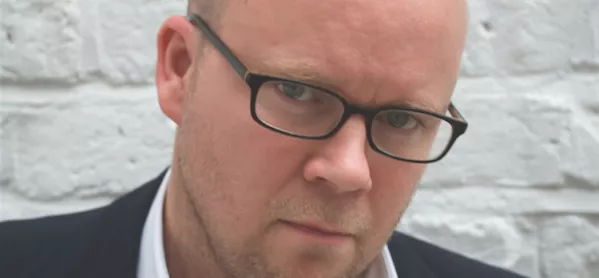The Department for Education should "forget about" choice and innovation in its free schools policy, the former head of the government-backed charity that helps to deliver the programme has said.
Toby Young, who founded the West London Free School and led the New Schools Network (NSN) from 2017 to 2018, said evidence now shows “what works”, and the DfE should be concentrating on delivering this at scale.
The free schools programme, which was introduced by Michael Gove in 2010, allowed parents, charities and businesses to set up state-funded schools outside the sphere of local government.
Quick read: Toby Young resigns from New Schools Network
Opinion: 'Against the odds, free schools are a success'
Long read: The unanswered questions about a free school scandal
Speaking at a Policy Exchange event last week, Mr Young said: “One of the rationales for free schools policy was that it creates a space for innovation and experimentation so we can see what works. But we now, I think, have enough evidence.”
He cited academy chains such as Ark, Harris and the Inspiration Trust, and said: “It’s all pretty much along the same lines. It’s essentially an English version of the urban, no excuses charter schools model.
“We’ve got about 40 years of evidence in America that those are the most effective types of charter schools, and it’s now becoming pretty obvious that the most successful academy chains, the most successful free schools, pursue exactly that same approach.”
Free schools: 'Forget about innovation and choice'
He added: “Now that we know, now that we have accumulated the evidence, let’s forget about choice. Let’s forget about innovation. We know what works. Let’s just try to roll out at scale what we know works.”
However, Luke Tryl, who now leads the New Schools Network, disagreed with his predecessor’s comments, despite agreeing that the evidence pointed to direct instruction and knowledge-based curricula being the most effective approaches.
He warned against supporters of these methods “becoming the new orthodoxy and we don’t allow ourselves to be challenged”.
“At NSN, I’m entirely happy to support schools like School 21 or Doncaster's XP School who do project-based learning, actually do it really very well," he added. "I have questions about whether that’s replicable across the system.
"The whole point of the free schools programme is to bring in challenger schools, which can upset the apple cart, so we don’t just preach what we believe and don’t subject it to any challenge at the same time.”
Lucy Heller, CEO of Ark Academies, told Mr Young that while her organisation was “signed up” to the approach he advocated, “the proof is slightly trickier than you think”.
She said: “If you aspire to the gold standard of the random controlled trial, there is not much that is proved, and part of the problem is that, unlike medicine, education depends critically upon the quality of implementation.”
Earlier in the same meeting, schools minister Nick Gibb called for the next prime minister to refocus the free schools programme so that it was “challenging existing education orthodoxies” and was as “iconoclastic” as when it was introduced by Mr Gove.




